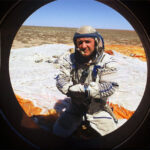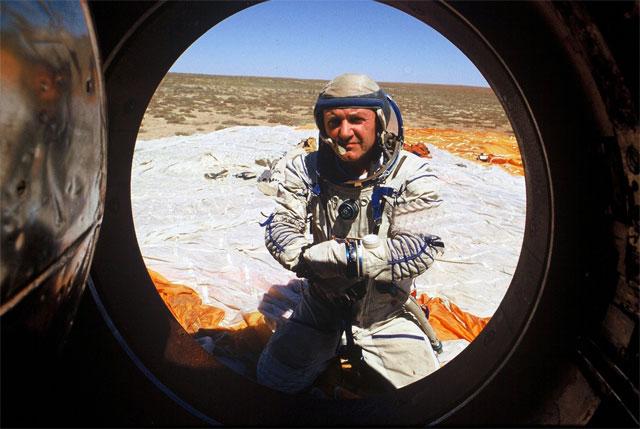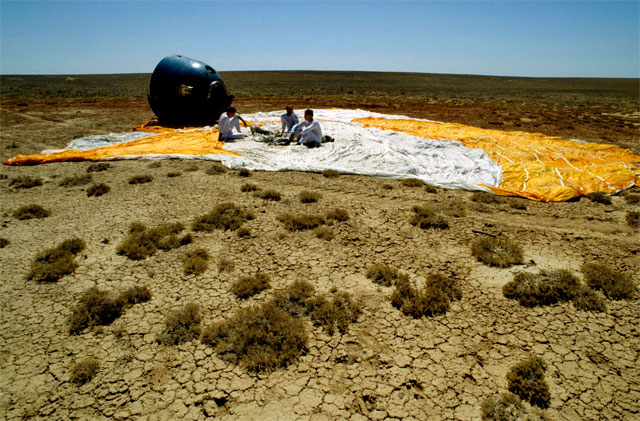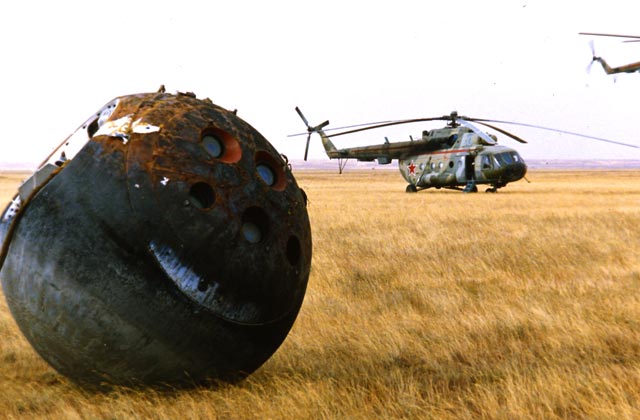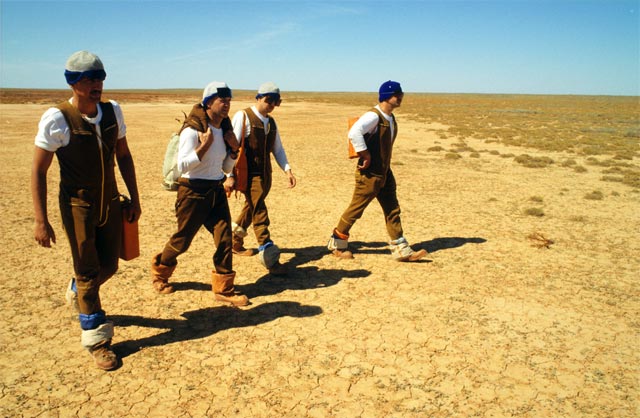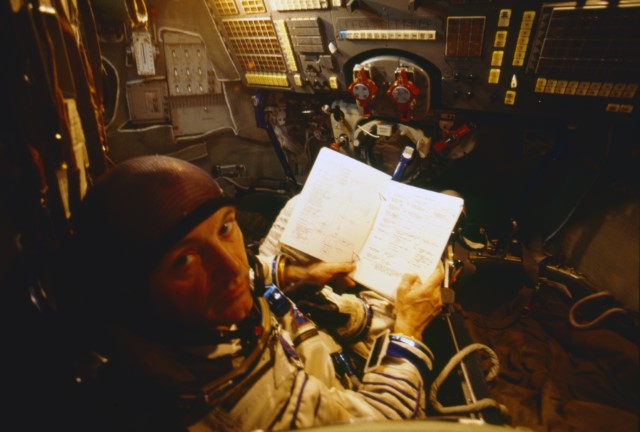We have to face two days in the desert heat on a lonely Kazakh steppe. I am leading a survival course for Russian cosmonauts. It’s to prepare for an emergency landing in some remote territory. Somewhere over the horizon is the Baikonur Cosmodrome, from where all manned flights take off.
Keeping in mind the basic rules of survival, which say that at the beginning you should take care to find shelter, then think about calling for help and look for water and food, we start building a makeshift roof that will provide us with shade and a little comfort in the hellish heat. From the huge, 1000 square meter surface of the parachute, we cut a large piece of fabric, fold it three times and attach it to the seats removed from the spacecraft.
So as to keep things handy, we take pyrotechnic material from our survival kit, meaning rockets, fire and smoke torches. We also put our containers with water in the shade, even though we have incredibly little water, only one liter per person.
My three companions fall asleep, yet I continue to contemplate the absolute silence and peace of this wild wilderness. In my journeys into the unknown, I am constantly discovering a new dimension of space and time, a realm of feelings and experiences unknown to townspeople. I am hardly aware that somewhere on this globe are Rome, Tokyo, Bangkok and their nervous, chaotic lifestyles.
The next day, our fight against the unbearable heat begins anew. We have cracked lips and an increased heart rate, feel our dry throats, painful calf cramps appear, and suddenly standing up from a squat sometimes causes darkness in our eyes.
After one more sleepless night, our adventure at the end of the world ends. We are taken to the base, where doctors check our health and where we can finally get water to drink, an indescribable luxury elixir that brings man back to life.


